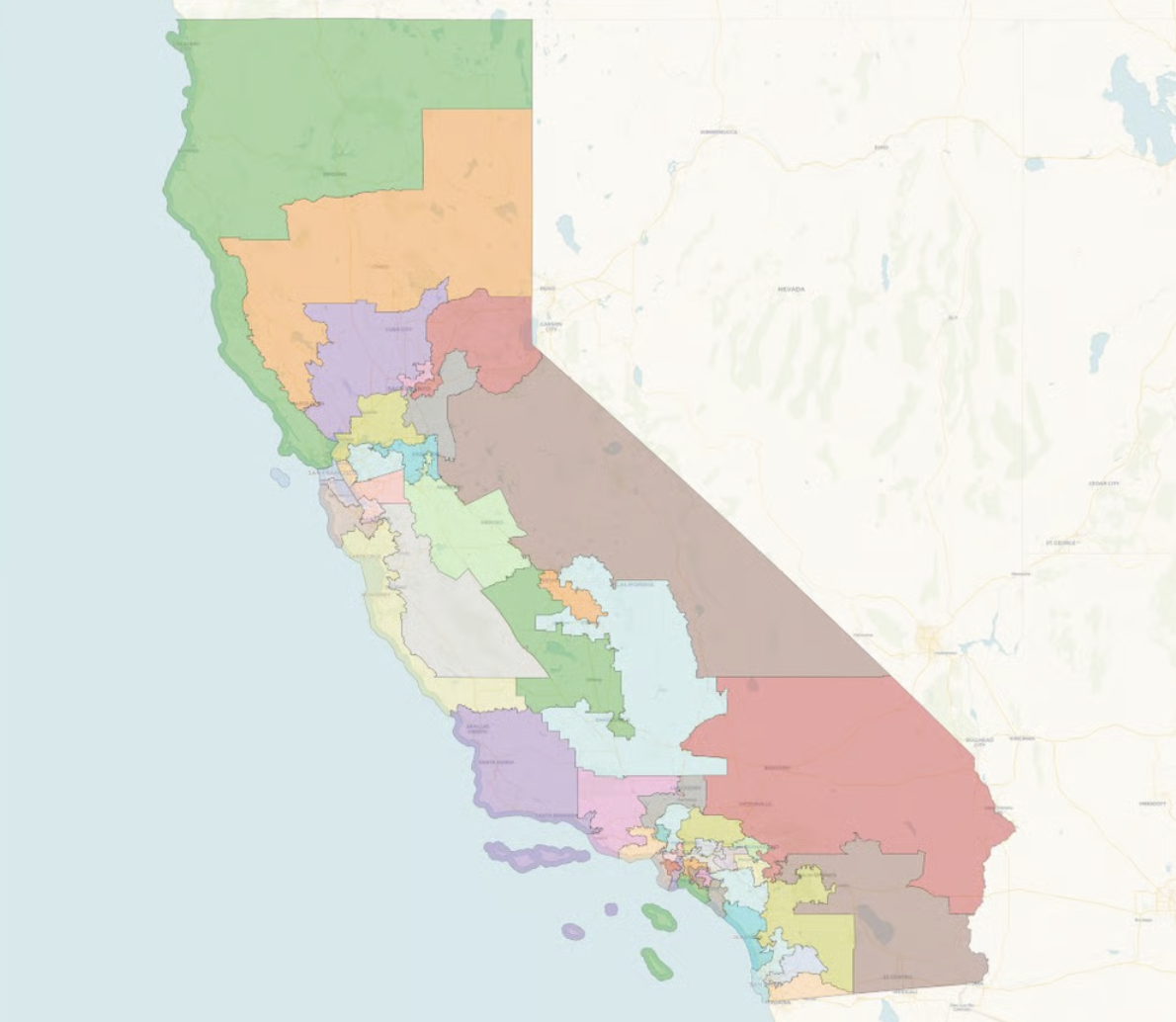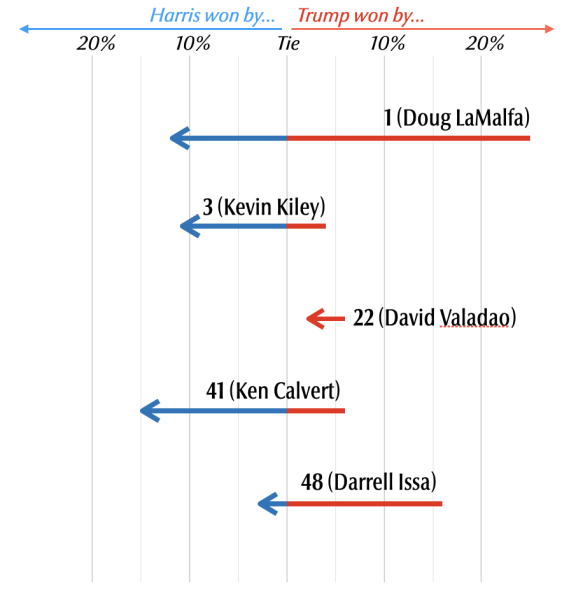
Jackson H. ’26
Redistricting was once a niche, periodic concern, with the process of redrawing each state’s congressional map taking place every decade after the nationwide census. But in recent years, and increasingly in recent months, the congressional map has become the battleground, a constant back-and-forth to gain the upper hand in next year’s midterm elections.
But on November 4, Californians will be given the choice to vote on Proposition 50, which would overturn the commission’s 2021 map in favor of a pro-Democratic gerrymander drawn by the state legislature. The new maps would be temporary, set to expire in 2032 and be replaced by a new commission-drawn map.
The measure is a direct response to a Republican gerrymander in Texas, drawn this July at the behest of President Trump. Texas’ new map will likely eliminate five Democratic representatives from the House of Representatives come 2027. California’s retaliatory map is set to unseat four of the nine Republican congressmen in California, with an additional Republican, Rep. David Valadao, pitted in a competitive but winnable race.
In 2008, Proposition 11 granted redistricting power to an independent commission and thereby eliminated the possibility of partisan gerrymandering—the practice of state legislatures drawing district maps that advantage a particular party. Today, seven other states have adopted an independent commission.
A report from redistricting law experts at the University of California, Los Angeles, suggested that Prop 11 did not explicitly revoke the state legislature’s power to redraw maps between censuses. Nonetheless, California Democrats opted to propose the change as a referendum in order to give the move greater legitimacy.
Gov. Gavin Newsom, as part of a broader effort to position himself as the principal Democratic opponent to Trump, has been Prop 50’s leading champion. In the span of two months, he has taken the prospect from seemingly unconstitutional to an intense contest, where both sides combined have already brought in $41 million in campaign contributions.
Most polls have shown Prop 50 passing, but the wording of the poll’s question is key: support outnumbers opposition only if the question notes the map’s temporary status.
For Nueva seniors over 18, the referendum will be the first election they’ll be able to vote in themselves. Many of these first-time voters remain undecided.
“There’s no good answer,” Grace B. ’26 said. “Either you respond with something bad or you don’t respond at all.”
For those who support the measure, the hope is that a stronger Democratic Party will be able to, in the long term, deliver nationwide action against gerrymandering.
“If we get a progressive government, I’d hope that gerrymandering can be diminished. I don’t know if it can completely go away,” Archie B. ’26 said.
Regardless of how the referendum goes, voters in the Nueva community will not be immediately affected—the seven solidly Democratic congressional seats in the Bay Area are all left virtually untouched by the redraw.
